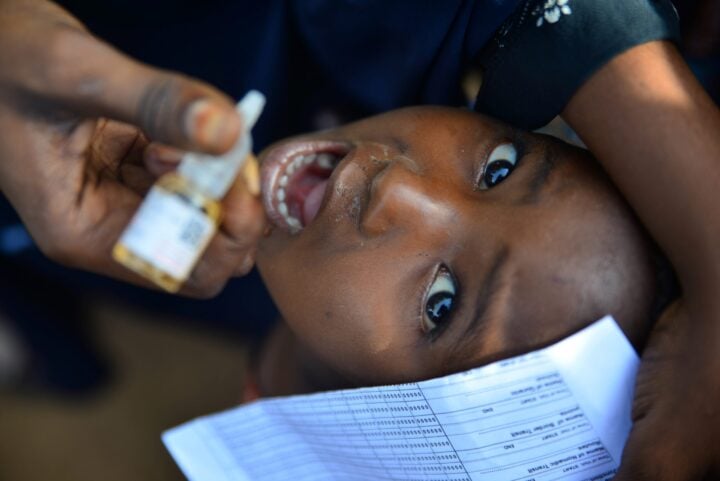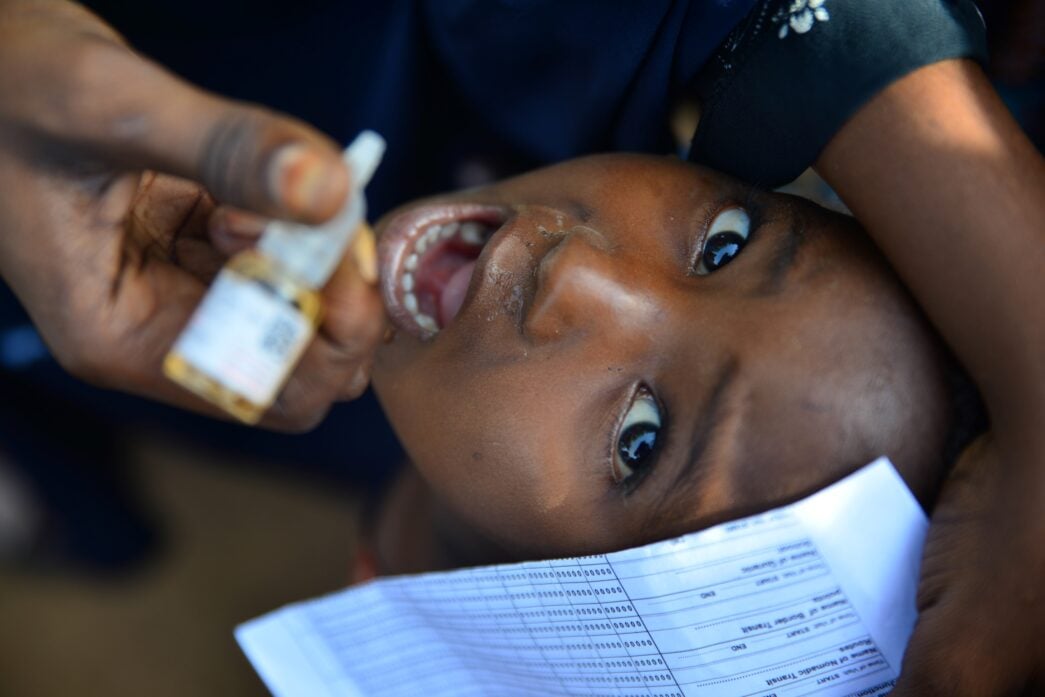Aisha, 3, receives the polio vaccine in Sokoto... Photo by Patrick Egwu
Muyi Aina, executive director of the National Primary Health Care Development Agency (NPHCDA), says the federal government is committed to ending polio and strengthening routine immunisation in Nigeria.
Aina spoke on Tuesday during a panel session on “Eradication & Beyond – Polio Infrastructure and Resilience”, at the 80th United Nations General Assembly (UNGA).
Nigeria was certified free of wild poliovirus in August 2020 by the World Health Organisation (WHO), marking a historic milestone after decades of efforts.
However, Nigeria continues to battle outbreaks of circulating Vaccine-Derived Poliovirus type 2 (cVPV2), a rare strain that emerges in under-immunised populations.
Advertisement
Aina said the federal government has resolved to intensify efforts to curb the transmission of (cVPV2) and rapidly scale up routine immunisation coverage.
“The federal government remains committed to ensuring that every Nigerian child is protected from vaccine-preventable diseases,” NAN quoted him as saying.
“Our polio infrastructure, built through years of collective effort, will continue to be leveraged not only for polio eradication but also to strengthen our health system and build resilience against future public health threats.”
Advertisement
Aina said the country’s participation in the UNGA high-level sessions was an opportunity to strengthen partnerships, mobilise resources, and showcase the country’s commitment to global health security.
Meanwhile, global health leaders at the UNGA meeting said the fight against polio was not only about eradication but also about resilience.
They said the systems built to track, respond, and vaccinate during polio campaigns were now being repurposed to combat other public health challenges, including measles, cholera, and even pandemic preparedness.
Advertisement











